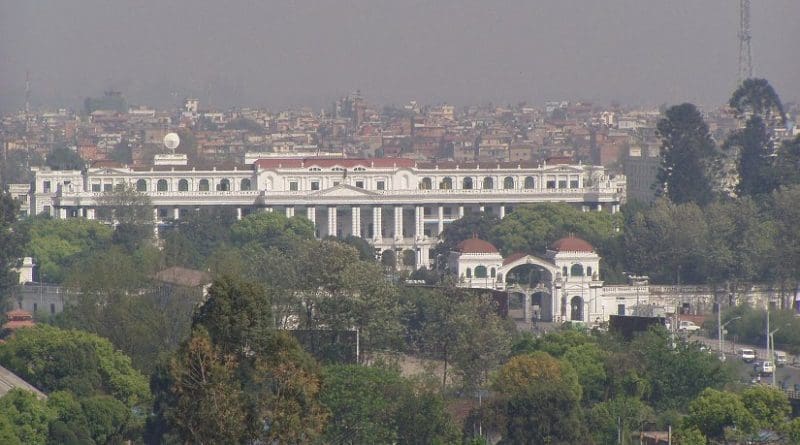Elections In Nepal: Misjudged Challenges Ahead – Analysis
By IPCS
By Sisir Devkota
According to the Election Commission of Nepal, there has been a drop in the number of registered voters from 17.5 million in 2008 elections to 12.3 million this year. Apart from this, the general belief is that the polls will take place. The belief comes from the fact that there have been rigorous election preparations and a significantly increased number of political parties (109) are contesting this time. The question within Nepal and in the international community is not whether the election will be held but whether the future assembly will succeed in delivering the constitution as old issues still persist.
One of the problems that could hinder the drafting of the constitution is the disagreement between the political parties on the nature of federalism. The second problem is the ‘no support stance’ of 33 other political units led by Mohan Baidya of the Communist Party of Nepal-Maoist (CPN-Maoist) on the constitution-making process. The main reason for the failure of the previous constituent assembly was also because of the deadlock between major political forces in achieving consensus on the structure of federalism in Nepal.
Federalism is not the Obstacle
Five years after the abolishment of monarchy, the demand for a federal republic by the Nepali people is why the future CA assembly will promulgate the constitution. First, it is because the major political parties – Nepali Congress, CPN UML, UCPN-M and the Federal Socialist Party – agree on the President-led federal design. Second, despite strong discord between the political parties regarding the basis for federalisation, they unanimously agree on the need to federalise Nepal which is logically possible only through the successful establishment of the CA. Therefore, even though the parties might not instantly agree, they will be careful not to repeat their mistakes and lose their CA tenure.
The failure of the previous assembly to write a constitution should be understood as a forward step in increasing the quality of discussion regarding federalism in Nepal. It should not be seen as an incapability of the century-long monarch-led nation to institutionalise a republic of the federal arrangement. The frequent addition of tenure in the past was not due to a problem with federalism but the discipline of political action. In fact, the dissolution of the previous assembly directly hinted that fresh elections would take place irrespective of any obstacles as perceived by the Nepali people.
CPN-Maoist Agenda: A Misconception
The CPN-Maoist-led alliance might not take part in the election, but public support in Nepal is divided among different political units, making them ‘conclusive game changers’ who have the power to apply pressure for the drafting of the constitution within the stipulated time. The non-participation and ‘no support stance’ of the 33-party alliance have been misunderstood. They are not against the electoral process but are rather a discontented band of parties who also advocate the federal structure. However, they are opposed to the election being held under the governance of the chief justice. In fact this is a CPN-Maoist strategy to guarantee themselves the 26 uncontested seats in the future assembly, which is probably more than they would have won had they contested the elections. Indeed, the future assembly would have no choice but to make them a part of the constitutional process as not doing so would have political consequences. Nevertheless, the lack of sufficient votes either supporting or denouncing a particular agenda could be a prime hindrance for drafting resolutions. For instance, on the question of a federal structure, the support of the Baidya-led faction could be decisive.
This approach of the CPN-Maoist is based on two calculated reasons. First, they do not anticipate a majority in the house from any political party and see their future role a conciliatory and sympathetic political entity. Second, by separating from the largest party, UCPN-Maoist, they are assured that the uncontested seats of the parliament will be bestowed upon them.
The discussion on federalism will certainly resurface in the future and the discontented parties will continue to present their opposing views which might lengthen the stipulated time for constitution-drafting. However, political representatives in Nepal would be careful to not take the second chance provided by the Nepali people for granted.
Sisir Devkota
Research Intern, IPCS
Email: [email protected]

